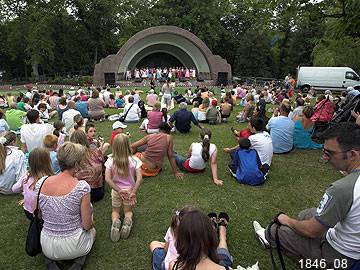Census result shows Rochdale population increase
Date published: 16 July 2012

Census result shows Rochdale population increase
The Office for National Statistics (ONS) has published the first results of the 2011 Census today, revealing a population increase in Rochdale.
Rochdale’s population has risen 2.6 per cent since the last census in 2001; up from 206,400 to 211,700.
The North West had the third largest population of any English region but had seen a decrease in its population between 1981 and 2001. However, the period from 2001 to 2011 saw population growth of 4 per cent – larger than in the North East but still less than the population growth in other English regions and Wales.
By comparison the population across the whole of England and Wales increased by 7 per cent to 56.1 million, the largest growth in population in any 10-year period since census taking began in 1801.
Jil Matheson, National Statistician said: "I'd like to thank everyone in the North West for their support. The 2011 Census has been a resounding success and I am proud of the incredible effort that has been put in.
“It is a rich source of information about the population and its characteristics. Across England and Wales around 19 out of 20 people responded and we have excellent statistical methods for ensuring we have a complete estimate of the whole population. These statistics will provide valuable information for planners, policy-makers and the public for years to come.”
Nearly all local authorities across England and Wales increased in population but eight local authorities in the North West saw a decrease in population: Barrow-in-Furness (4.0 per cent), Knowsley (3.5 per cent), Sefton (3.2 per cent), Burnley (2.7 per cent), Hyndburn (0.9 per cent), St Helens (0.8 per cent), Stockport (0.5 per cent), and Blackpool (0.2 per cent). Across all of England and Wales 17 local authorities decreased in population.
Manchester was the largest authority in the North West by population with 503,100 people, an increase of 80,400 (19 per cent) between 2001 and 2011. The percentage increase was the third largest in England and Wales behind Newham and Tower Hamlets.
The local authority with the fewest people was Eden, with 52,600 people but it still grew in population by 5.4 per cent, which is more than the average for the region.
Eden was also the least densely populated local authority in England and Wales, with 25 people per square kilometre. By contrast, Manchester was the most densely populated local authority in the region with 4,350 people per square kilometre, which equates to 43 people on a rugby pitch.
Across England and Wales there was a 13 per cent increase in the number of children under five, with over 400,000 more in 2011 than in 2001. In the North West there were 36,500 under fives compared to 2001, an increase of 9 per cent in that period. Blackburn with Darwen had the largest proportion with 8 per cent, with the smallest proportion in South Lakeland (4.3 per cent).
The total number of households in the North West was 3 million. Blackburn with Darwen also had, along with Oldham, the largest average household size in the region, with 2.5 people; Fylde and Blackpool had the two smallest (2.1 people).
Do you have a story for us?
Let us know by emailing news@rochdaleonline.co.uk
All contact will be treated in confidence.
Most Viewed News Stories
- 1Council tax rise planned for the Rochdale borough - have your say on budget cuts
- 2Sports club music festival to go ahead despite neighbours’ fears
- 3Police officer from Rochdale sentenced for sexually assaulting colleagues
- 4Rochdale Feel Good Festival takes a break in 2025
- 5How life has changed on a notorious, crime-ridden estate shut off to outsiders
To contact the Rochdale Online news desk, email news@rochdaleonline.co.uk or visit our news submission page.
To get the latest news on your desktop or mobile, follow Rochdale Online on Twitter and Facebook.

